This transcript is from an interview that was first published on 13th of July 2019. This transcript has been edited slightly to help with clarity, the audio of this episode and more information can be found here.
In this interview was conducted by Patricia Hayes Cavanagh who was an Australian Youth Dance Festival, Youth Ambassadors.
Transcripts are a new initiative of Delving into Dance, seeking to make the rich audio archive more accessible to deaf audiences and for educators. These transcripts are paid for through the support of audiences and supported by the Victorian Government through Creative Victoria, and the Australian Government through the Australia Council, its arts funding and advisory body, as well as audience contributions. It would be wonderful to have your contribute to this initiative. You can contribute here.
Patricia Hayes Cavanagh: I started by asking, where did dance start?
Daniel Riley: Oh, wow. Um, I actually don’t tell too many people this. I don't know why, and now I'm going to tell everybody because they’re gonna listen to this podcast, it started when I was nine years old. I started with tap dancing.
Patricia Hayes Cavanagh: Oh, my goodness, I love that!
Daniel Riley: Yeah, I think I was drawn to it. My sister was doing it at the time and I was really drawn to, I think, the rhythms of the feet and I quite like the physicality. And I know The Tap Dogs were big at the time and I was like, ‘Ah, they're cool; that's really awesome! I want to be able to do that.’ So I got into that, but dance for me really kicked off and started when I moved to Canberra and I joined Quantum Leap, it’s now called QL2. For me, being surrounded by people who understood and who had the same kind of drive every week to go get up on a Sunday morning, and go and dance and move and express and feel connected and creative. And yeah, all of these things, and how they're all wrapped up in the idea of what dance is, but also what the idea of a company or a group is. It’s that sense of group and sense of company, and you find your place in that. I just really loved that whole aspect of it, yes - it was social, but I really loved the freedom of expression. And just realising that, wow, I don't need to use my mouth if I want to tell a story, and realising ‘Oh, yeah, I can do that through movement and I can do that through body expression.’ And moving my body through the space in a weird, wonderful, beautiful, awkward way is an incredible thing to be able to do as humans. To emote like that and to tell stories and to kind of connect to something that's so much more innate than words are. That for us to just kind of move and react so instinctually is an incredible thing. So I loved all that around dance, which is why I've done it for so long. I’ve found different things along the way and different reasons to stay and to be doing it, and I’ve come this far down the rabbit hole now, it's like, ‘I don't have any other skills. So well, I'm in it now, so I'm just going to continue to ride the wave’ you know? Ride it until the wheels fall off. And you find different facets of it too as you go through your career. I started dancing when I was nine and I'm now 33; I’m just now navigating into the next stage of my career. And your interest waxes and wanes, too. It's not easy, as you know, physically and mentally, so your interest and commitment waxes and wanes, but that's okay, that's a good thing, too.
Patricia Hayes Cavanagh: When you first started training was there anywhere that you really wanted to take your practice? Or any kind of goals that you wanted to reach?
Daniel Riley: When I first started, no. For me, it was a hobby at the time. And I think for many young people around that age of 10,11,12 years, it's a hobby. It's just something. I played cricket in winter, I played soccer in summer, but I danced all year. So it was just a hobby for me at the time and even when I found youth dance and I found Quantum Leap, and I joined this kind of company, it was in many ways a kind of cult, which I'm sure that you can appreciate. So yes, it's a hobby at the time and then your interest snowballs and your commitment snowballs; I found it started to kind of take over my life. In my very young, preteen age I was thinking about it more. I was looking to do more classes and wanting to engage in it more and yes, I think a big part of it was social. To actually be around people who understood, who were similar, and kind of weird and quirky, as all artists kind of are! It wasn't really until year 11 or 10, when I was still living in Canberra and going to Telopea Park High or Canberra college, when this wonderful cultural company came through Canberra, Bangarra Dance Theatre, and it was the first time I had seen a show and not just enjoyed it for pure aesthetics. It was the first time that I really felt it and that I really felt a connection to something deeper and bigger than myself, and bigger than the art form in a way. So for me, it was then, I was like, ‘that's it!’ It was a light bulb, I was like, ‘This is what I’m meant to do, this is destiny, this is a way I can connect to my culture, into my heritage and grow my identity.’ So from then on, from year 11 or year 12, I was thinking - Okay, how do I get to do this? What boxes, what steps and levels do I need to take to get to that? I need to train okay, where do I do that? So I looked at all the options: QUT, WAAPA, AC Arts, VCA, and The New Zealand School of Dance. I've looked at places like NAISDA and I decided to audition. What do I need for the audition? Yet again, more boxes, more levels to tick off. And I was like ah, ballet? Ah, damn. Okay, well, alright if I'm going to do it. Then it was then actually around the time of year 11 and year 12 that Ruth Osborne, artistic director of Quantum and a very good friend of mine, a sweetheart, I love her to death, said, ‘You know this is that company’s job.” I was like, ‘What do you mean?’ She said, ‘That's their job, they get paid to do that.’ And that blew my mind, my world opened; how was I was meant to know that? And so when I realised that I was like, ‘Okay, that's what I got to do.’ And so then I realised that I needed to get into university, I was really serious about this. I needed to have some sort of proficiency, an idea of what a plié or a tendu was, I completely accepted that I was never going to be good at it, then or even now, but I needed an understanding to show my commitment, so that they would accept me, so that I could train hard for three years, and then get accepted in Bangarra. And so it was just one of those moments where you just keep ticking off things that you need to do; you do the pre-planning before you get to the big show.
Patricia Hayes Cavanagh: Yeah, we have this saying at QL2, once a Quantum Leaper always a Quantum Leaper.
Daniel Riley: Always.
Patricia Hayes Cavanagh: I've been repping my QL2 shirts all week! What does being a part of that legacy of QL2 and Quantum Leap, and that wider community, mean to you? How does that carry on?
Daniel Riley: When people ask me about my training, Quantum is always the first name I drop, always. Because that's where the seed was sown for me. That's where the seed was sown and the idea of doing what I get to do now started; and Quantum is also a place where I developed a lot of my long term relationships. A lot of people who I call friends now, creative artistic friends, I first when I was a young dancer and at different levels. And some of them, who I still call very good friends, we danced together, and there are other people who came through Canberra and just did workshops at Quantum. But I met them, and then years later when I was in the industry, I was like, ‘Do you remember that? ‘Yeah, wow.’ All of these connections and everything just kind of add up, and it just goes to show how wonderful the dance world is. Everyone is supportive and everyone wants everyone to succeed. But I think the legacy of Quantum is that Quantum Leapers have gone, and continue to go, far and wide: into Europe and all through Australia, Asia, we continue to grow and thrive. And I think a lot of that comes down to the commitment that was instilled in us at Quantum and that dedication. That's where a lot of that was instilled for me in the creative periods of learning. Because I went through QUT and Brisbane, I noticed the level of confidence we had, those of us who went from Quantum; you really noticed the level of confidence in a creative period or a creative zone. It was very clear: who had worked collaboratively and creatively, and who hadn't. And so I think that to instill these kinds of ideas in dance so young is such a gift. It takes us as young dancers out of a youth company into an institution, like you are yourself now at PPY, or when I went through QUT, without blinkers on; you're already thinking laterally and you're already thinking about the greater world. You're not just thinking about how high my leg is, or if your épaulement is perfect or about getting that three point pirouette. So the technique is underlying actually, the greater gift is the artistic openness that I think, for me, was instilled at that early young age. And I think a lot of Quantum Leapers would say the same thing.
Patricia Hayes Cavanagh: I know I would.
Daniel Riley: And you notice these things especially, and you notice that every day. Now I've mentioned it, you'll notice it every day you go to PPY. You look around the room and see who's creatively activated in the conversation and who's not, or who's just there to be told what to do, as opposed to making it a conversation or a dialogue. (14:48)
Patricia Hayes Cavanagh: Yeah. What is something that you take with you to each new project that you do? It could be a project with a company or a choreographic project. What do you keep with you that really helps to ground you and your work, or help develop the process?
Daniel Riley: I think innately you always take your past experience, whether that be good experiences or bad experiences, you’re always taking your previous work with you. And for me that helps too, because again, that's confidence; to go into a room full of people you don't know and create work on them, and to instantly know how to work that room and to connect, and to open those dialogues. I think that just comes from past experience. Personally, I would try to take in is a sense of honesty, and a sense of truth, in who I am, as an artist. I'm not trying to be anybody else. I'm not trying to replicate anybody else's ideas or work. I'm doing me, Dan’s doing Dan. And that's something that I try to take that into every process, every new role. I'm literally at the end of my third week of a completely new role that I've never done before in my life. I'm an associate producer, and it'll be at the Ilbijerri Theatre Company. And so, I'm trying to take 13 years of professional dance and choreographic experience into a role of producing theatre. How do you do that? I don't know. I'm making it up as I go along. I'm in this to learn how to produce work. So in the future when I create my own work, I can already know how it runs. I know how a business is run. So I think it's just my example of trying to take an honesty and truthfulness and a really good strong sense of self as well. Just be you. I think that is, there's only one you and I think that's the best thing that you could do is just to be you. Sometimes you'll fit and sometimes you won't, and that's okay.
Patricia Hayes Cavanagh: How did the opportunities that were granted to you during your time at QL2 translate into university, going into Bangarra and choreographing? For example doing Hot to Trot or working with different choreographers in the senior projects.
Daniel Riley: Again it’s that the door had been opened to me through working with different people. So you’re learning different choreographic tools, or ideas, or different ways of moving, and it's continuing to build your internal physical library, and you try to build the biggest library you can. So when you have enough skills for a certain project and you’re filtering through, you know that you have done that and that you can do that, or it’s ‘That's new, let me file that in new.’ I remember creating my first work at Quantum, at the time I thought it was great. And I thought it was genre defining in a way, and I look back on it now, and I cringe! It kind of makes me feel a bit ill that I have thought those things, but I guess you have to start somewhere. The beauty of these youth companies and the beauty of youth dance is that it's a safety net, you can fall, and that’s okay. I know, artists now, professional artists, who still fall and fail, and that's okay. There's nothing perfect about the arts, there's nothing perfect about what we do, it's all-subjective, it's all constantly developing and growing. So I think one of the gifts of youth dance was being encouraged to fail, and that's okay. Those opportunities to create work with your name on it as a choreographer is super important, actually, for the building of confidence for young creators. And just the opportunities to even just watch rehearsals for a professional company, to sit in the theatre and watch a company do company class is a huge gift and an amazing thing, to see the level of dedication that professionals show. The more doors that are open for you the better I think, as young artists, and I definitely feel like Quantum set that up for me. (21:00)
Patricia Hayes Cavanagh: What lies ahead for you in the future? What interests you right now that you're really looking forward to exploring more?
Daniel Riley: Wow, I could talk about that for an hour! God so much! What interests me? I definitely love the arts and I love the wholesome feel of it. I love, you know, it's not easy, it's hard, but I love the endless possibilities. At the moment I’m producing work for an indigenous theatre company that I am also super interested in. I think dance and theatre can definitely go hand in hand, they're both visual mediums, and they're both storytelling, and they should play, you know, with each other. So, I'm definitely looking forward to learning more about theatre and more about the art of theatre, and the making of that, and the presentation of that, and how that's going to feed into my choreographic work, because I'm still choreographing and still creating and I’ve got commissions on the horizon that are coming. So I'm not out of the dance world, but I'm really excited for the next year to kind of be one foot in each; to be in this theatre world and a dance world that I know so well and I care so deeply about. I really want to just kind of keep learning and expanding, learning how to run a company, because I'd love to be an artistic director one day; I'd love to lead a company or my own company, whatever comes first. And obviously the importance of black storytelling and making sure that artistic First Nations people and artists, have strong roads and strong ways to tell stories. We’re the world's oldest living, thriving culture and so when we need the longevity in ways to tell stories, and the ways to present work. And for our artists as well, we have over 65,000 years of culture and stories to tell, but new stories are being made every day. So it's just about trying to hold all of this and how I can kind of help. I don't know how much I can do, but I can do my part and help in facilitating and advocating for that. Because, you know, I think it's super important. (24:17)
But also actually one my first loves, which is why we're doing this, is youth art and youth dance. I will be in a QL2 advocate until the day I die, and I hope QL2 is still around and thriving. I adore that company and I adore the work that they did for me. And I'm always telling Ruth, ‘Call me whenever, I'll do whatever, whenever.’ Just look at all of the professional artists in companies spread around Australia; whatever the professional level companies are, we all started somewhere. So I think the more open minded, creative young people we can create, the better the professional level work is. There has to be, there should be more, every state has a professional level company, every state should have a youth company. There should be this access for young artists and for young dancers to connect and to find common people and to do common work and to grow and to open the eyes of Australia as a nation, so it's bigger than just the arts. Really , the amount of people who actually have access to the arts every year is huge, in all sorts of arts. So I just think youth organisations are so powerful, they can be so powerful and important for young people, for their confidence, their creativity, and their lines of communication; I just think they're really important. And somehow we need to make sure that they continue to be there; we can't really afford to let them fade away. I don't know how we're going to do that but we'll find a way somehow. I don't have all the answers, I don't profess to have all the answers but I do profess to being a huge advocate for it. (26:49)
Patricia Hayes Cavanagh: Are you taking each new thing as it comes and rolling with it? Or are you looking to really keep pushing up and keep pushing forward?
Daniel Riley: I’m a little bit from column A and a little bit from column B. In the new role, I think I'm still learning every day, and so I'm kind of just going with the flow. As I said before, I’m making it up as I go along and being open to help, which is a wonderful thing. But definitely, I’m maybe hunting quietly, I'm still trying to be quietly pushing onwards and upwards, in different ways. But I’m definitely not “in park” you know, I'm definitely still moving forward. I think the way I'm moving forward is maybe not so narrow anymore, I think it's a little bit wider, and not down a one way street but on a four or five lane kind of highway: there's different things. And trying to also forge out a career; I realised that I couldn’t dance forever. Well, actually, I'll take that back. I think I will dance and I haven't retired, people asked me, ‘have you retired?’ and I'm like, ‘do I look 65?’ I haven't retired, I just walked away from Bangarra Dance Theatre for now. My interests had changed and I was after another challenge, and that wasn't the place for me anymore. So hopefully I can - like a boomerang - go back at some point in the future. But for now, I think I just needed to take a step aside and focus on me, on Daniel Riley and who I am as an artist, not who I am under a larger organisation, if that makes sense. So, yes, I'm still collating ideas and collating experiences, which we all do.
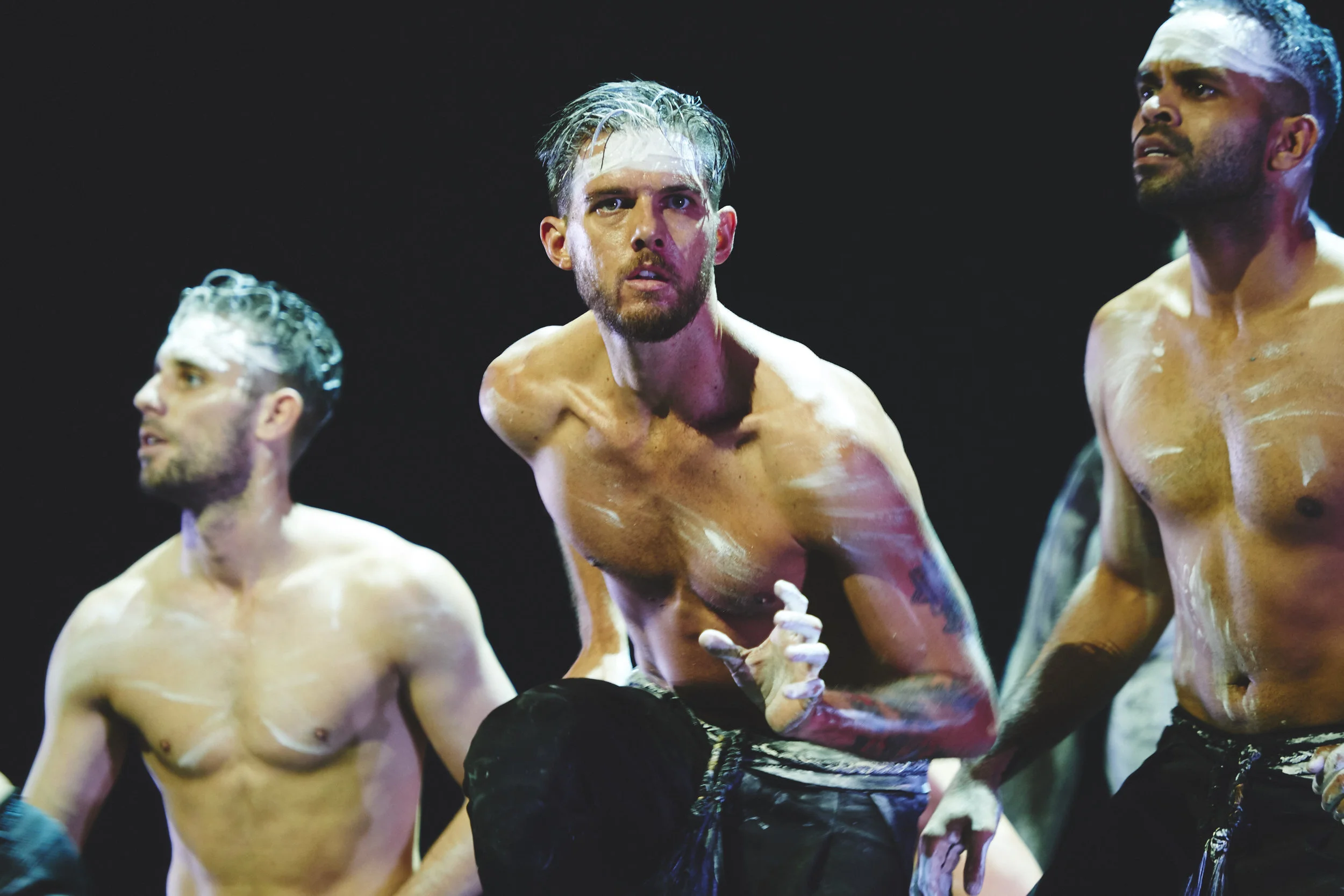


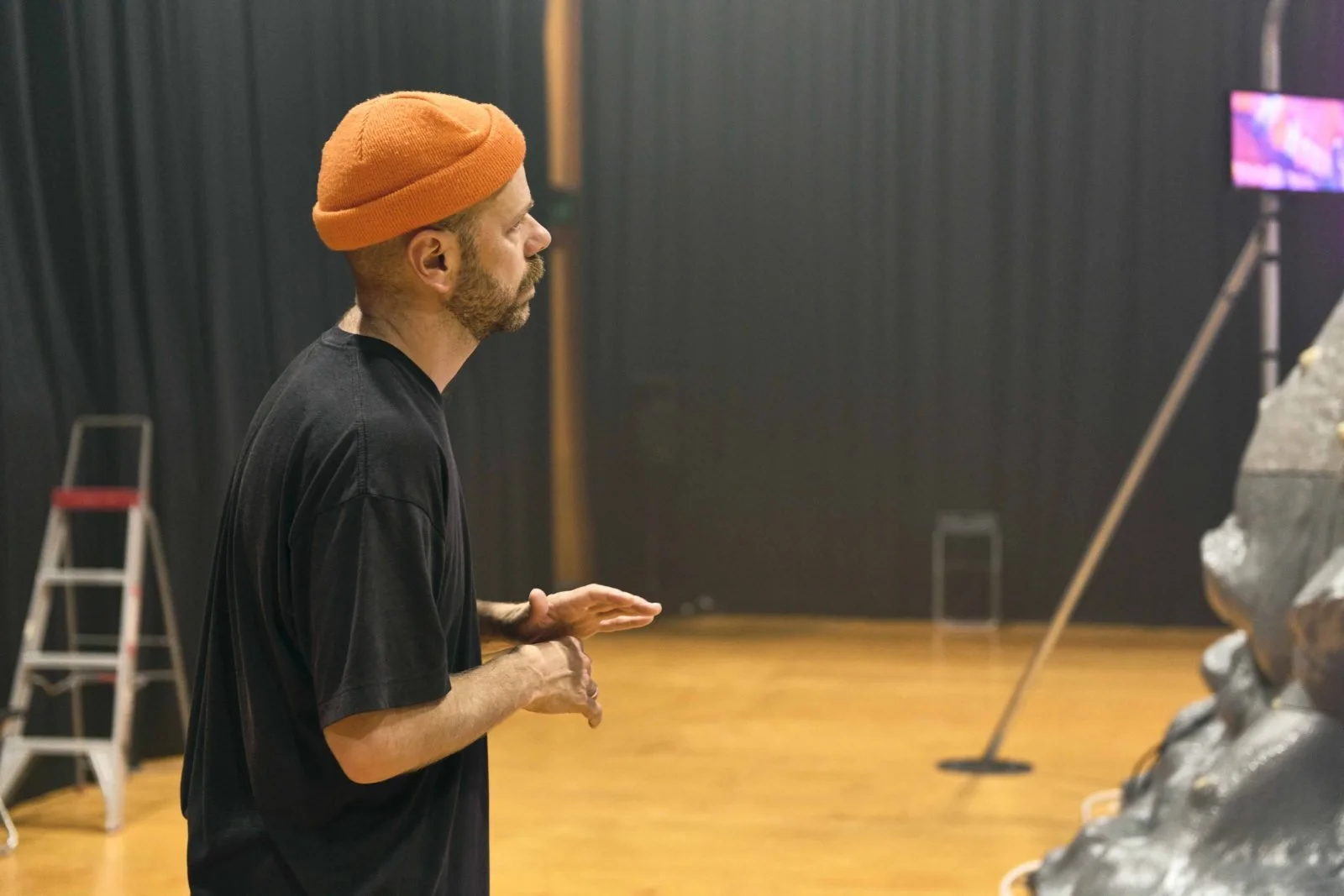


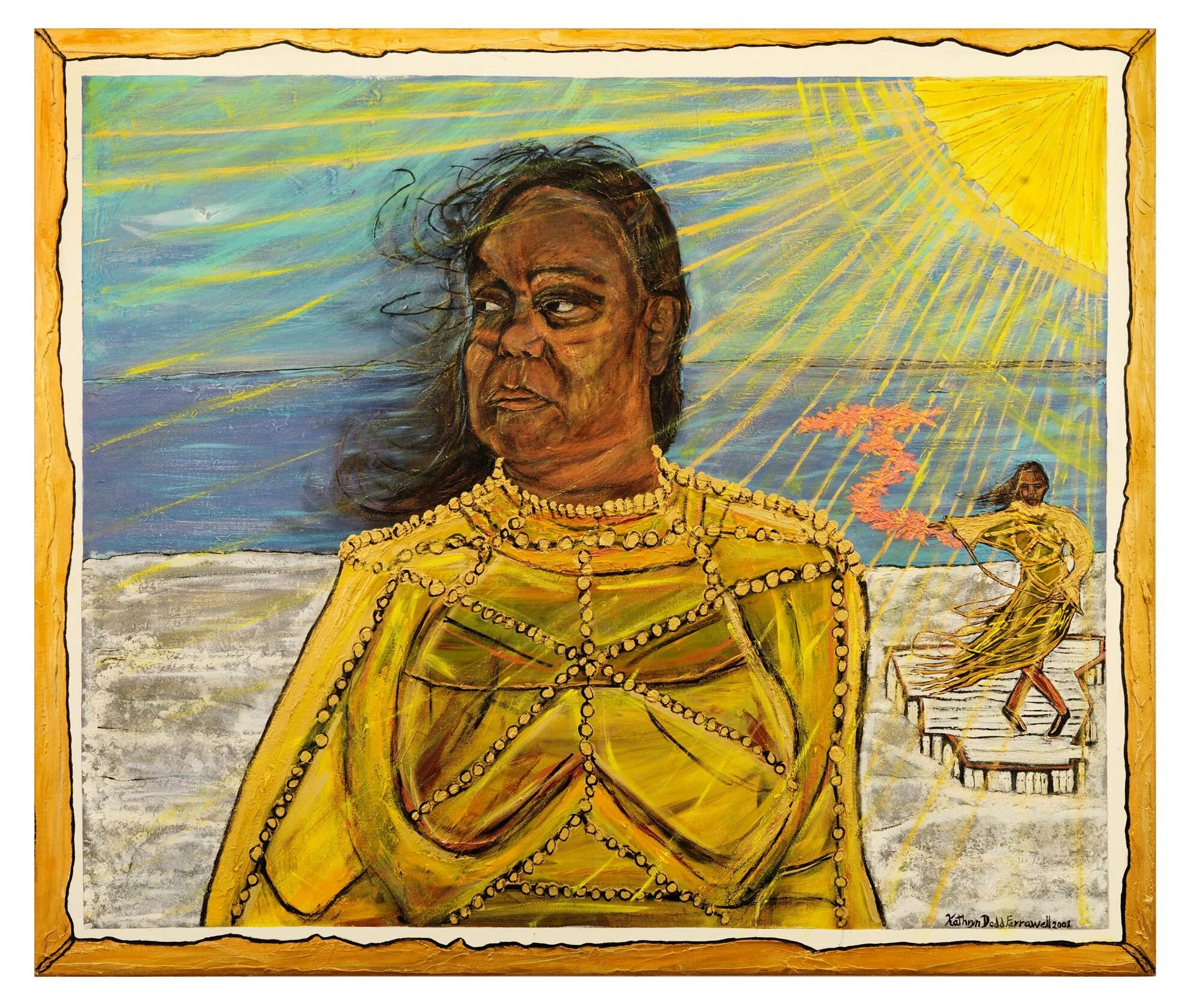
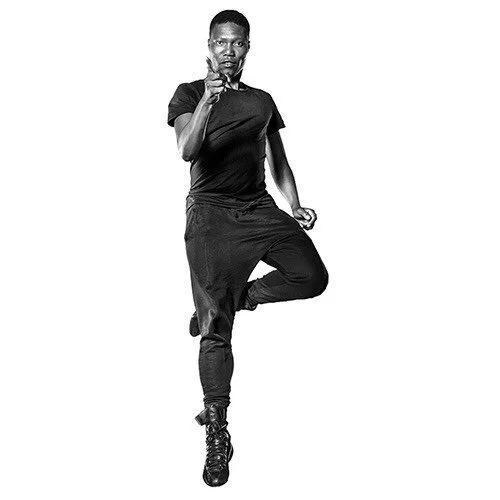





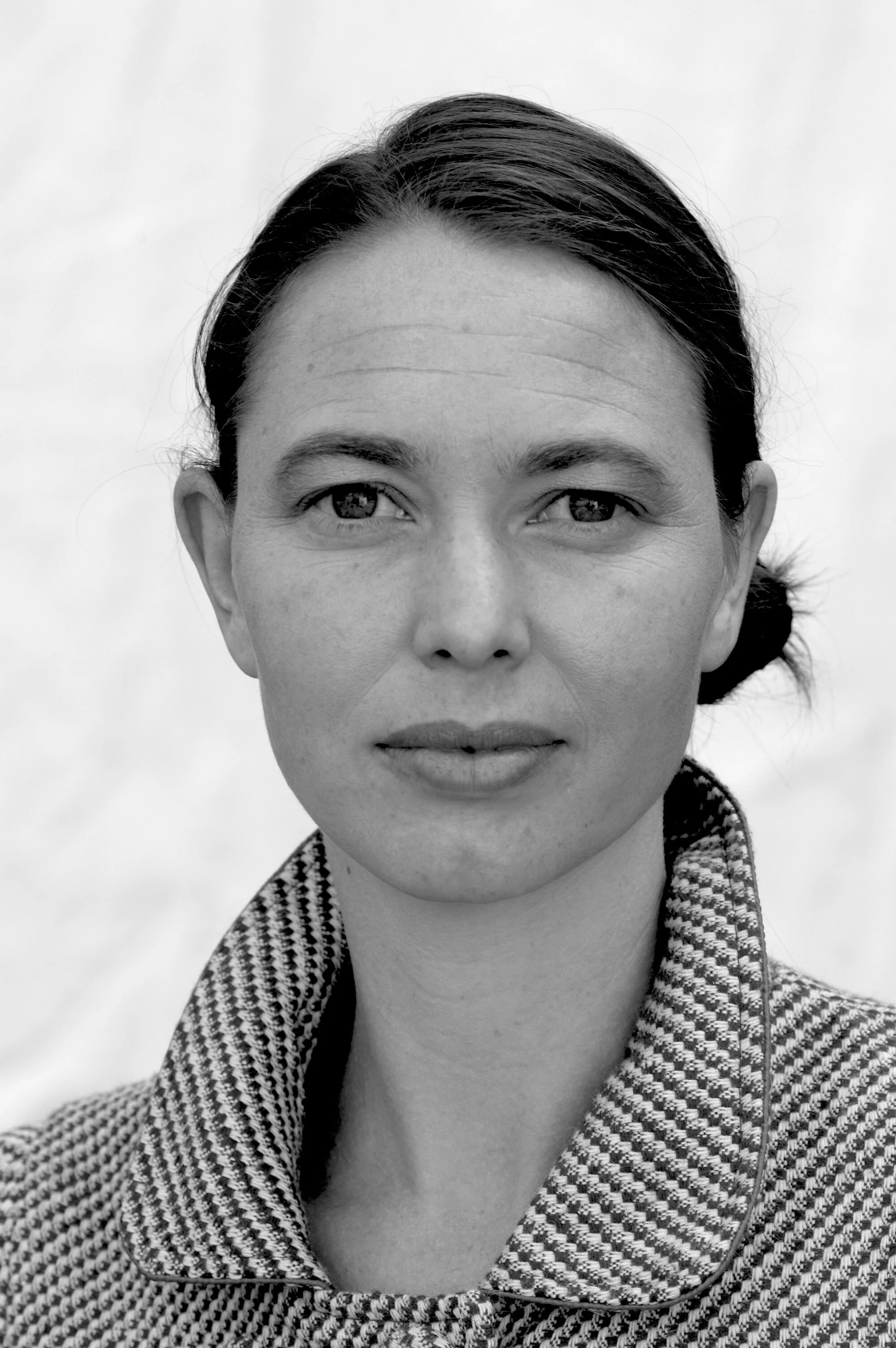
















“Complacency will kill the opportunity to make it in this industry.”